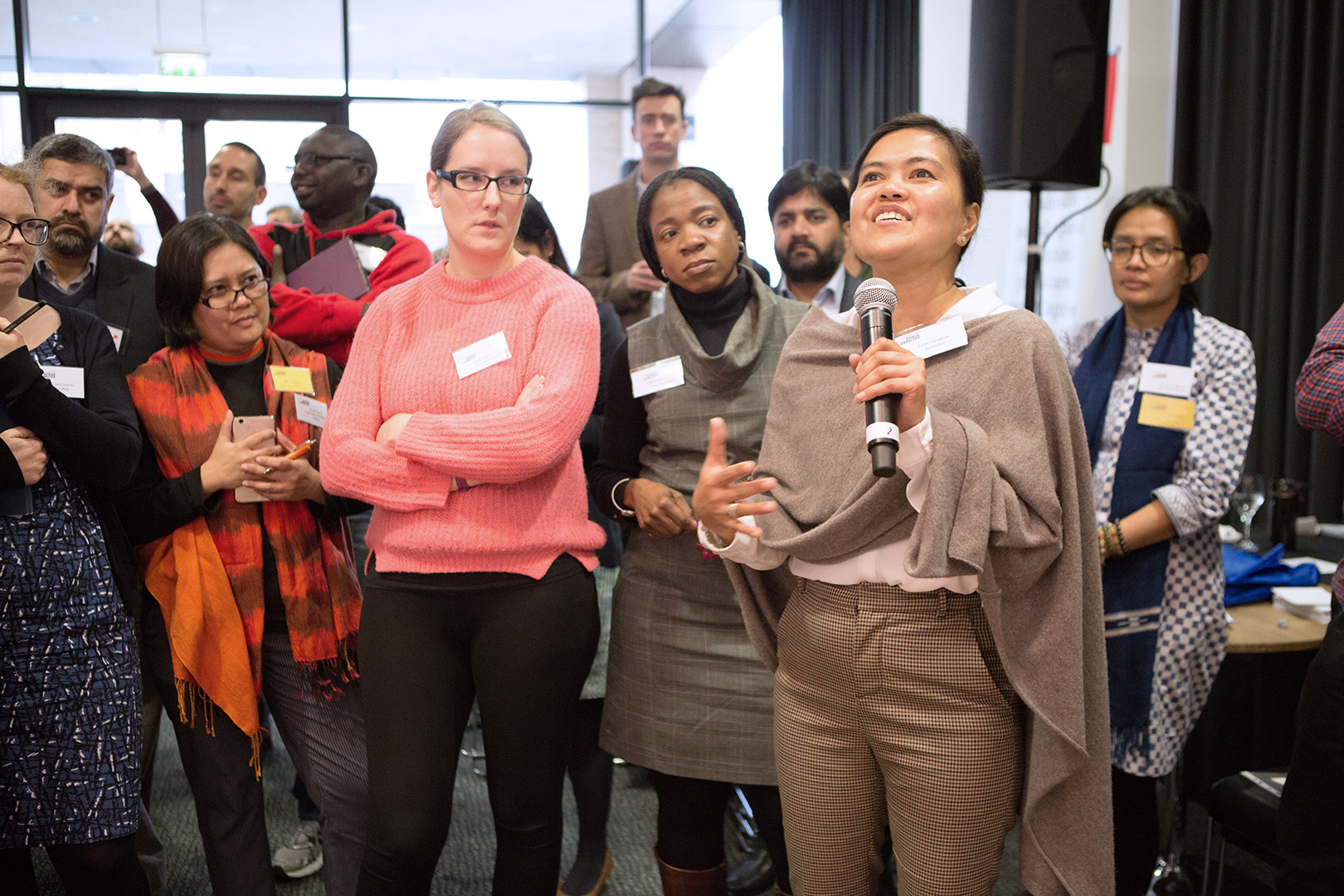Haben Habteslasie is the Advocacy and Communications Advisor for the Disasters & Emergencies Preparedness Programme
The year 2030 has become a year of visionary ambition for both humanitarian actors and those seeking to develop sustainable change. In the humanitarian sector, the Grand Bargain of commitments were carved out of the World Humanitarian Summit in 2016 and the focus was clear: humanitarian actors need to use a more localised, longer term and community led response to crises and preparedness; we need to work together to maximise efficiency and learning; and we need to be more flexible and transparent.
Of course, this all sounds great in theory, but it has been said before. So, what is different this time?
The Start Network’s Disaster and Emergencies Preparedness Programme (DEPP) recently organised a week of discussion, bringing together local organisation, INGOs, UN agencies, academia, the private sector and other actors. This was with the aim of understanding how best to use each other’s learning, experiences and expertise to gain a common appreciation of what exactly some of those Grand Bargain commitments look like and how they can be actualised. It was important to be realistic about the barriers to change as well as being mindful and economic about using past learning, as opposed to starting from scratch, yet again.
Below are some of the highlights from our DEPP event: Humanitarian Resilience Week.
Leading from the ground up
There were lively discussions around how to facilitate integrated community led responses that bridge the humanitarian and development divide – this is key since much of the localisation and preparedness agenda will mean building the capacities of local humanitarian actors and nurturing more long-term relationships with local partners.
One of our portfolio of projects, Linking Preparedness Response and Resilience (LPRR), yielded some illuminating lessons on localisation, including challenges and solutions. Simone di Vincenz, who works on the DEPP LPRR project, said:
‘We need to acknowledge that 'crisis communities' are always first responders their response is extremely significant. Having a readiness to support innovation, test new approaches and be willing to embrace the concept of 'letting it go’ is important’.
Jing Pura, of Christian Aid Philippines echoed this sentiment on local responses in the Marawi crisis, saying, ‘the International Committee of the Red Cross were deployed in three days, but the communities’ response was instant. They offered up their own homes for up to 80% of displaced people.’
The debate around localisation also featured discussion on making stronger investments in local communities. In this regard, audiences had the opportunity to hear from DEPP trainees, one of whom was trained in Kenya, working in its Dadaab Camp – where close to a quarter of a million displaced people are hosted - and is now studying a masters at Oxford Brooks.
Working together
Throughout much of the debate around how to work together better, there was a recurring call for common platforms for sharing learning and coordinating responses. An example shared of this is the DEPP Learning Platform – an open website that centralises all the learning our programme has gathered, including resources, case studies, research and tools. Participants were also briefed on Alert - a digital platform for humanitarian agencies, including community organisations, to see who is responding to what and flag alerts to impending crises.
But working together does not always mean working across international and local levels, or only - in more classic ways – at the INGO or donor level. More importantly, it means actors working together on local and regional platforms.
Roselle Rasay, Executive Director of CODE NGO – the largest coalition of civil society organisations in the Philippines talked about the important of this insofar as surge, which is the rapid deployment of humanitarian experts to a crisis:
‘Elements of surge capacity that can be improved include resources being made available on all local levels, so that effective humanitarian responses can be carried out. Logistics is a huge challenge in the Philippines due to costs but we know that these challenges are not insurmountable. It is time for Start Network members to step up.’
Rudolph Muller, Director of OCHA Geneva, commented:
‘We have had an increase in demand of surge but with shrinking resources. In response, we released a strategy to strengthen the surge capacity to meet the needs of disaster.’
With this in mind, he added, ‘it is important to reach out prior to a crisis at a country and regional level. This requires a lot of work.’
Being flexible and transparent
One example of a discussion we had around this theme was on partnerships. We asked audience participants to get into groups and identify what were the actions for progress when looking at partnerships between INGOs and local partners.
Time and time again, the important of flexibility and transparency featured in participants’ responses. Some actions were: making partnerships agreements fit-for-purpose according to the needs and capacities of the organisations involved; having a more inclusive process for designing projects, and agreeing upon principles and values; and having a greater accountability by INGOs by asking them to report to donors, ie two-way reporting.
We will close our highlights with the open remarks of our Start Network director, Sean Lowrie, which lie at the heart of what it is all about:
‘Drivers of humanitarian crises, such as climate change, are all increasing. Demonstrating humanity in times of inhumanity is important for us.’

